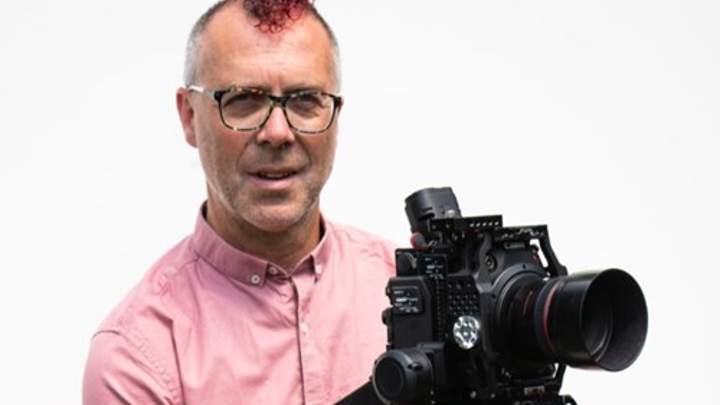
Moonrise Media
Will Hopkins was a software developer for 40 years before, last year, deciding to take his enterprise, Moonrise Media, which is based in Brockhampton, in a whole new direction - filmmaking. He is right at the beginning of his Greener Footprints journey, which is why he joined the initiative so he could benefit from the initiative's ongoing collaboration. Moonrise Media has developed live streaming packages for organisations and develops films - or micro documentaries - that help share human stories. He told us why Greener Footprints is so important to him at the start of this chapter for his company.
As a 'solopreneur' it can be hard to know what to do to make a big impact. I'm working out of my rented house, have no staff and am just at the beginning of this journey. My films are designed to make a difference in the world by telling people's stories and showing the impact of the work they do. I am aware that, like most start-ups, I am balancing ambitions to sustain the business and to reduce my carbon footprint as it grows.
Being part of the Greener Footprints Business Network is a chance to learn from, be inspired by, and collaborate with others across the county. It's more than signing up to principles. It's meeting and being part of conversations and brainstorms about what is possible. There is a lot of focus put on what Government can do to help big businesses on this journey, but I think a lot can be achieved by businesses working together across size and sector.
I have been able to take immediate actions. So, for example, I need a lot of lighting in the work I do. I had kit I'd bought a while back and it included the compact fluorescent variety of lighting that was used before LED - so I moved to LED lights, which are not only are good for business costs and the environment but give me more creative options too. I'm also very conscious I often need to buy lots of small and very particular items for my work - from batteries to filming tools - and if I am having goods mailed that is creating a lot of journeys. It could be 15 for 15 pieces of kit. Organising purchase and bulk delivery is one small thing I can do to mitigate that. But I also know I am turning up to jobs in my old diesel pick-up truck which I rely on to move kit around and will have to stay for a while before I can afford to replace it with an electric vehicle. I am very much at the start of this journey.
I hope live streaming can sustain remote working and help companies on their own environmental journey, too. I've made that one part of the business with the aim of bringing meetings and events alive - whether they're hybrid or fully virtual events. Live streaming can save speakers and their audience having to travel, sometimes across the world. People became used to Zoom and Teams during the pandemic, but there is an appetite to go back to in person because of the restrictions of those platforms and the barriers to meaningful engagement they create. However, there are ways to work remotely that move beyond the webcam on the table, allowing the camera to move to whoever is speaking. For example, I'm working at a conference at NMITE on the 'Future of Work', but one of their speakers is based in the US and this will allow them to feel and be much more included - seeing and interacting with the panel and the audience.

